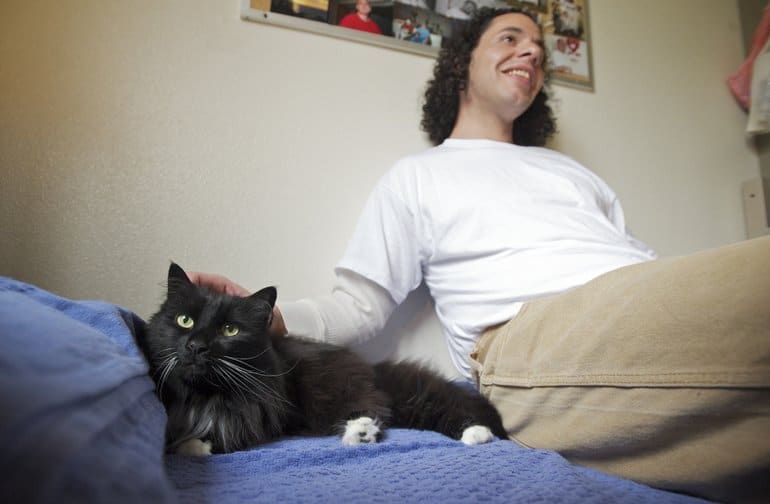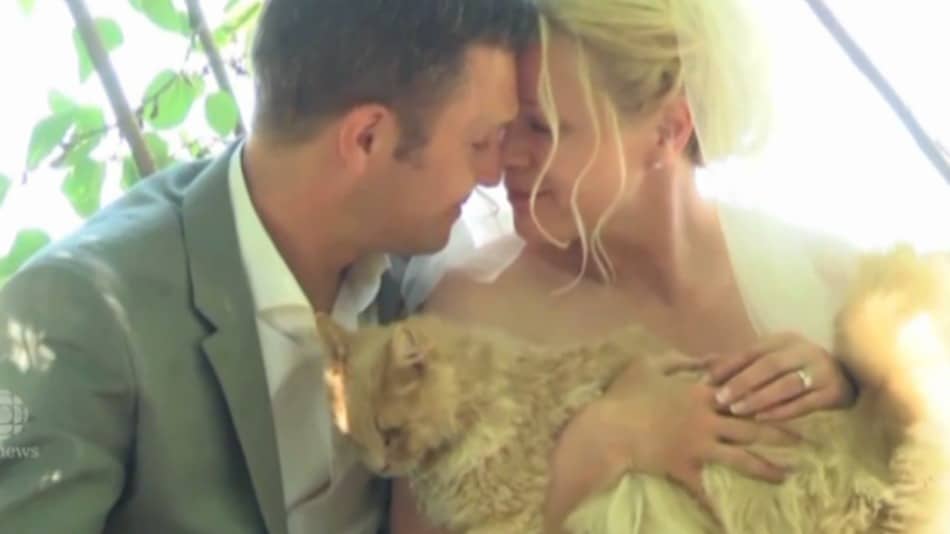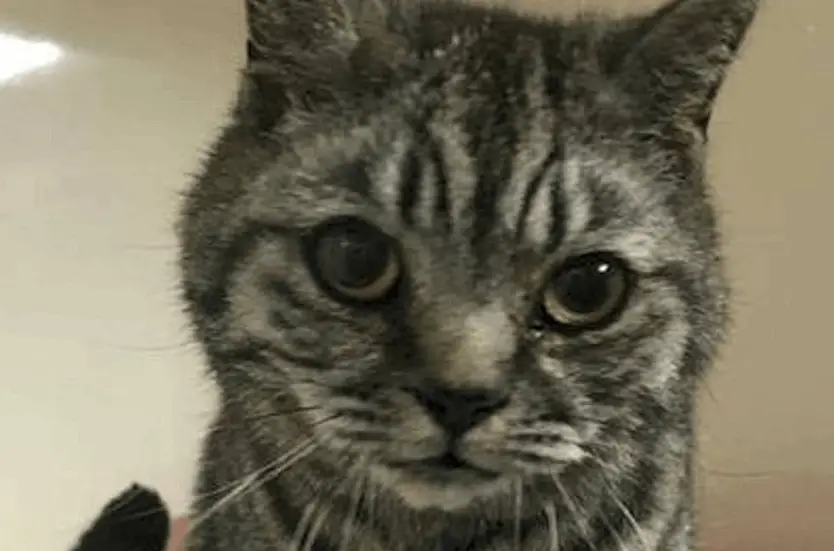Most cat parents are aware of the most common items that are poisonous to our feline friends — chocolate, grapes & raisins, onions, alcohol, and artificial sweeteners like those found in sugar-free gum and candy. But, as responsible pet guardians, we should make ourselves aware of the extensive list of dangers that can be found all over our homes!

Check out this surprising list of some of the most common toxins that the Pet Poison Helpline gets phone calls about:
1. Topical Flea & Tick Treatment

While it’s a necessary part of pet parenthood to protect your kitty from fleas and ticks, and your veterinarian may recommend a safe topical flea treatment like Advantage for Cats to combat those pesky bugs, many other over-the-counter topical flea treatments are actually highly toxic to cats.
Never, ever use a flea product labeled for use only on dogs on your cat! These products can cause severe illness and even death. Spot-on flea products that contain high concentrations of permethrin (and are approved for use on dogs only) are very dangerous for cats, so read your labels carefully. Make sure you are only using a product made for cats.
2. Household Cleaners

Yes, it seems obvious that household cleaning chemicals would be toxic to cats. It should go without saying, but, you should keep your cleaning supplies safely put away when they aren’t in use. Many cats are attracted to the smell of bleach and may be tempted to even taste your cleaning supplies. If you’ve got an especially resourceful kitty, it’s not a bad idea to install child safety locks on your cabinet doors to keep curious paws out.
After cleaning your floors or counters, be sure no chemical residue is left behind that your cat might walk on. The simple act of your cat licking their paws after stepping on some chemicals might be enough to make them sick. Consider replacing some of your chemicals with pet-friendly cleaners that are safe for your furry family.
3. Human Medications

Any of us who have ever struggled to medicate our own cats may find it surprising that so many cats are poisoned by ingesting human medications. But, it happens quite often and the results can be tragic. Many medications intended for human use are toxic for cats and can result in acute kidney failure and even death.
Particularly bad for cats are pain medications (NSAIDS) like Advil and Tylenol and cold & flu medicines. While some human medication is safe for your cat, it should only be given under the advice of your veterinarian.
4. House Plants

Cats and kittens love to play with plants. Unfortunately part of cat play often involves licking, biting and consuming the plants! Many plants are toxic if ingested. Some are so toxic, in fact, that even your cat brushing against the pollen can be enough to land him in the emergency room.
Live plants that are harmful to cats include Lilies, English Ivy, Philodendrons, Poinsettias, and Dieffenbachia. Be especially careful if you receive a bouquet of flowers as a gift – as many of them include dangerous flowers that can harm your furry friend. Put your bouquet up and out of reach or remove any of the dangerous flowers before you put it on display.
Fortunately, there are plenty of plants and flowers that are perfectly safe for your cat to enjoy! Consider planting an indoor cat garden.
5. Glow Sticks

Believe it or not, glow sticks and glow jewelry are among the top toxins that the Pet Poison Helpline receives phone calls about. During certain holidays, especially Halloween, glow sticks can be found at the checkout counter of nearly every store. Though they’re a fun toy for kids, they pose a dangerous threat to our pets.
Glow sticks contain a chemical called dibutyl phthalate (DBP), the oily liquid that causes that familiar glow. If your kitty bites into a glow stick, DBP can leak out and cause profuse drooling, burning and irritation to the skin and eyes, and vomiting. As your cat grooms himself, he ends up ingesting more of the DBP as he cleans it from his fur.
If you suspect your cat has ingested any of the items on this list, or anything else you think might be toxic, call the Pet Poison Helpline or your veterinarian for advice immediately.
If you found this helpful, pin it!





